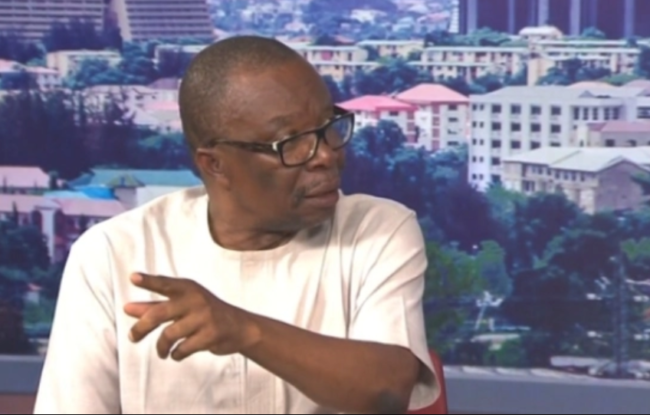Expansion in the non-oil sector pushed Nigeria’s gross domestic product (GDP) to 3.54 percent in the second quarter of 2022.
According to data released by the National Bureau of Statistics (NBS), the development is an improvement from 3.11 percent growth recorded in the first quarter.
On a year-on-year basis, NBS said the second quarter of 2022 growth rate decreased 1.47 percent points from 5.01 percent growth rate recorded in the corresponding quarter in 2021.
The International Monetary Fund (IMF), in its World Economic Outlook (WEO) for July 2022, retained a projected economic growth of 3.4 percent for Nigeria in 2022.
Advertisement
But what sectors are behind the uptick in the nation’s GDP? Here are a few takeaways from the latest report.
NON-OIL SECTOR — MAIN DRIVER OF THE ECONOMY
In real terms, non-oil sector contributed 93.67 percent to the nation’s GDP in the second quarter of 2022. The figure is higher than 92.58 percent in Q2 2021 and 93.37 percent in Q1 2022.
Advertisement
According to NBS, the non-oil sector grew by 4.77 percent in real terms in Q2 2022 — lower by 1.97 percent points compared to the rate recorded in Q2 2021 and 1.31 percent points lower than Q1 2022.
The sector was driven mainly by information and communication (telecommunication), trade, financial and insurance (financial institutions), transportation (road transport), agriculture (crop production), and manufacturing (food, beverage & tobacco), accounting for positive GDP growth.

Analysis by TheCable Index showed that the ICT sector recorded 6.55 percent growth rate in real terms in Q2 2022. Of total real GDP, the sector contributed 18.44 percent in the period under review.
Advertisement
Trade, on the other hand, contributed 16.81 percent to the economy, higher than 16.66 percent recorded in the previous year, and higher than 16.13 percent recorded in the 2022 first quarter.
The report showed that economic activities are picking up around the telecoms and trade services after the COVID-19 pandemic and government regulations on SIM-NIN integration.
“The unprecedented contribution of ICT to Nigeria’s GDP can also be attributed to the dynamic and results-oriented leadership of the sector,” Isa Pantami, minister of communications and digital economy, said in a note.
He said the development was also in line with the federal government’s commitment to developing the digital economy through the implementation of the National Digital Economy Policy and Strategy (NDEPS).
Advertisement

NIGERIA’S OIL SECTOR STILL DOWN
Advertisement
The oil sector contracted during the period due to low production, divestment and crude oil theft.
The report said Nigeria’s average daily oil production in Q2 2022 stood at 1.43 million barrels per day (mbpd) — lower than the 1.49 mbpd recorded in Q1 2022.
Advertisement
The sector contracted by 11.77 percent year-on-year in Q2 2022, indicating an increase of 0.89 percent points relative to the rate recorded in the corresponding quarter of 2021.
On a quarter-on-quarter basis, the oil sector recorded a growth rate of -4.97 percent in Q2 2022 and contributed 6.33 percent to the total real GDP in Q2 2022.
Advertisement
Add a comment







